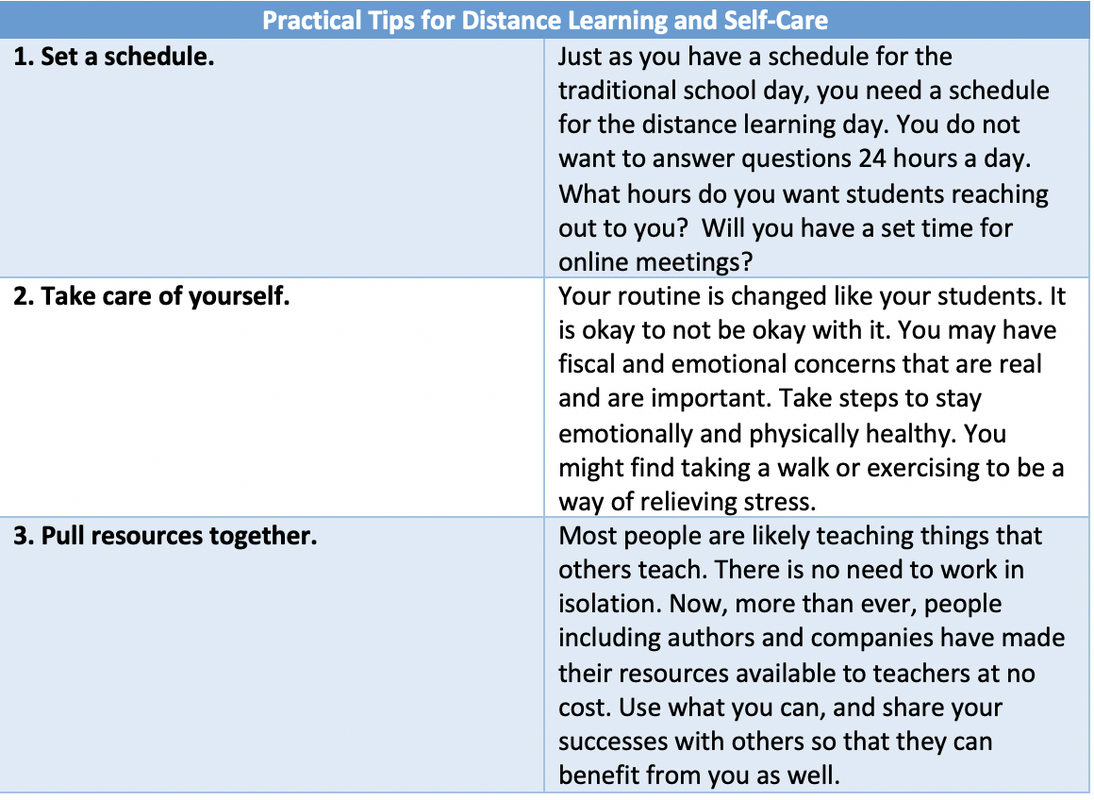BY SUZANNE KOTY
Are you a mentor to a new teacher and wondering how to support your mentee through this difficult time? Before we begin thinking about how to support each other, let’s remember the familiar advice to put your own oxygen mask on before assisting others. It is okay to take a breath or two. It is okay to stabilize your own needs and not feel like you have to put everything and everybody ahead of yourself. Once you have some oxygen flowing and can think clearly, you are going to be better prepared to support others.
How can you help the person you are mentoring?
1. Be vulnerable. My guess is that you are feeling somewhat like a new teacher in all of this. In mentor training we talk about how moving into a new teaching situation can make you feel like a new teacher all over again. This is a new teaching situation. Everything is different. Some of you are teaching online. Others have sent home packets and are reaching out to students. There is a different scenario based on where you teach. It can be tremendously comforting to hear that you are not alone in feeling stressed about the lack of familiarity or the change in routines. Share with your mentee how you are feeling.
2. Offer your expertise. As much as you may feeling be stressed, you have a wealth of knowledge to fall back on to make this work. Your mentee lacks that experience and historical knowledge. Share how you are managing certain aspects. Offer advice and support.
3. Remember Maslow. Just as we take care of students’ basic needs before we move up the hierarchy, we need to ensure that we do the same for our teachers. Knowing that he/she can contact you for support will help ease concerns.
4. Tending to mentoring tasks. Once you have taken care of the relationship and the person, you can offer to help support the teacher academically just as you would in the traditional setting. If you have online learning, offer to attend a Zoom meeting or online session. Perhaps they could use a set of eyes on their instructions to students or perspective on their expectations. There are a number of ways you can offer your help.
5. Understand your audience. You may be working with someone who needs space to work through particulars. You may be working with someone who feeds off contact. Some people will want some type of routine or normalcy while others will want new structures in place. Meet your mentee’s needs.
How can you help the person you are mentoring?
1. Be vulnerable. My guess is that you are feeling somewhat like a new teacher in all of this. In mentor training we talk about how moving into a new teaching situation can make you feel like a new teacher all over again. This is a new teaching situation. Everything is different. Some of you are teaching online. Others have sent home packets and are reaching out to students. There is a different scenario based on where you teach. It can be tremendously comforting to hear that you are not alone in feeling stressed about the lack of familiarity or the change in routines. Share with your mentee how you are feeling.
2. Offer your expertise. As much as you may feeling be stressed, you have a wealth of knowledge to fall back on to make this work. Your mentee lacks that experience and historical knowledge. Share how you are managing certain aspects. Offer advice and support.
3. Remember Maslow. Just as we take care of students’ basic needs before we move up the hierarchy, we need to ensure that we do the same for our teachers. Knowing that he/she can contact you for support will help ease concerns.
4. Tending to mentoring tasks. Once you have taken care of the relationship and the person, you can offer to help support the teacher academically just as you would in the traditional setting. If you have online learning, offer to attend a Zoom meeting or online session. Perhaps they could use a set of eyes on their instructions to students or perspective on their expectations. There are a number of ways you can offer your help.
5. Understand your audience. You may be working with someone who needs space to work through particulars. You may be working with someone who feeds off contact. Some people will want some type of routine or normalcy while others will want new structures in place. Meet your mentee’s needs.


 RSS Feed
RSS Feed

